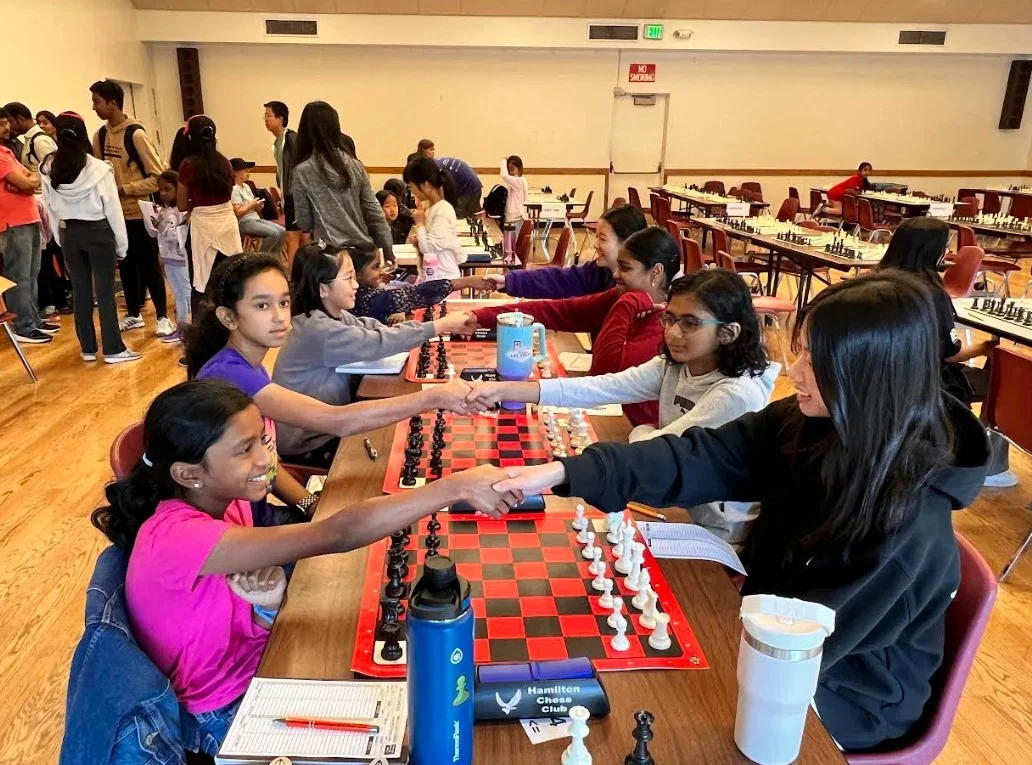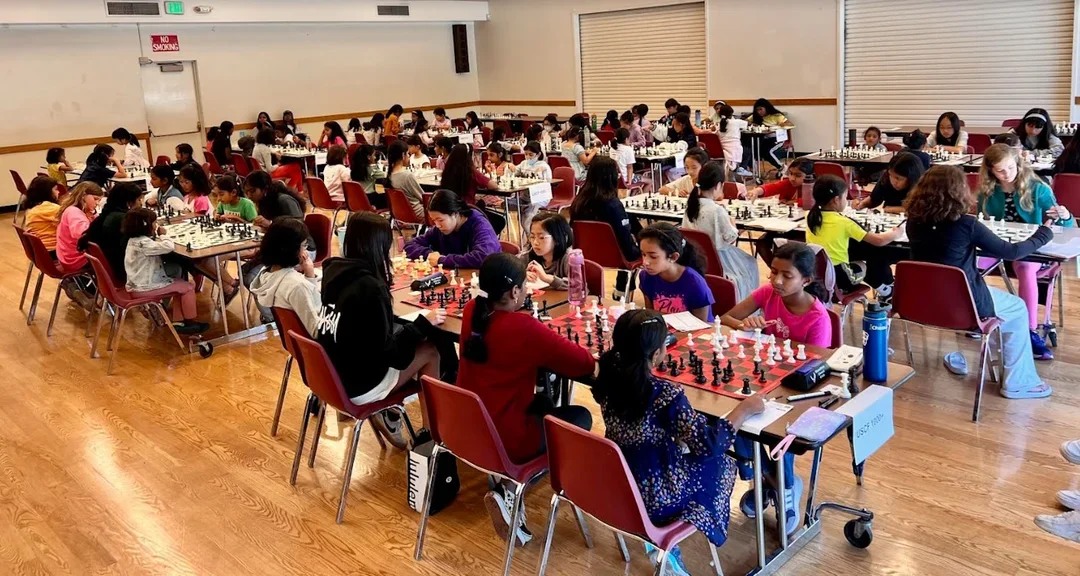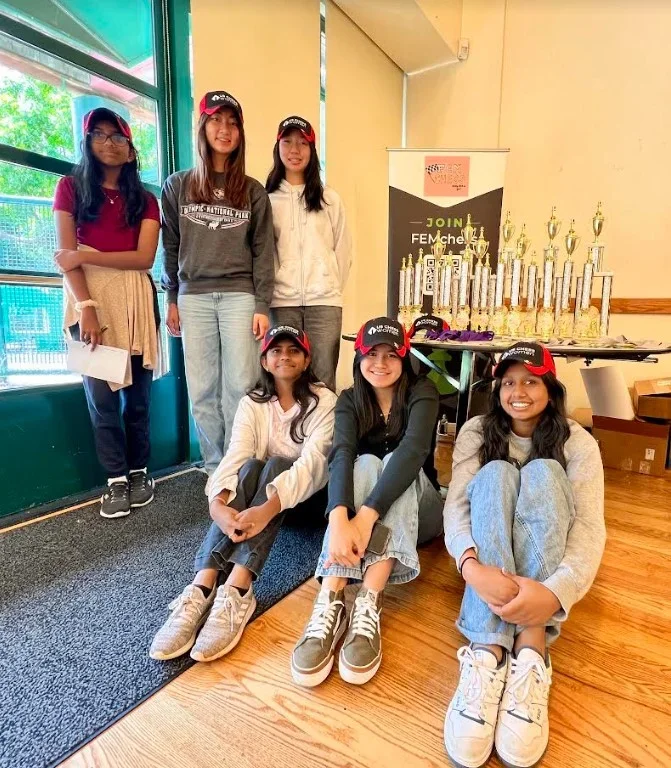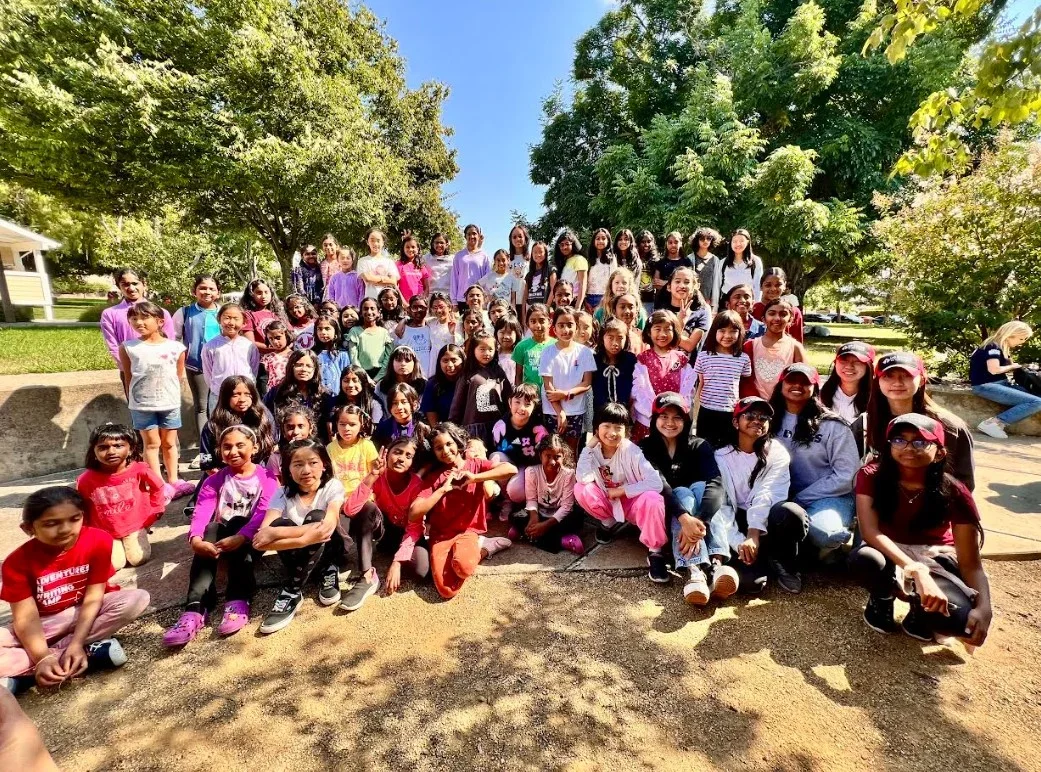Editor's Note: On August 24, FEMchess hosted its third California All-Girls Scholastic Championship, breaking its previous record of 62 participants with 89 players participating. FEMChess co-founder WCM Allyson Wong has written this piece to discuss her motivation for and ongoing work in closing the gender gap in chess.
Chess has long been a male-dominated sport, but recent trends show encouraging progress in female participation, particularly among younger age groups.
Improving the overall participation rate of women and girls has also had positive impacts at the top levels. A decade ago, no female player was in US Chess’s list of Top 100 Players Under-21 rankings, and only six girls made the Under-7 list. Today, six female players have entered the Under-21 list, and 19 girls have made the Under-7 category, marking a significant advancement.

Despite these improvements, there is still much work to be done to fully bridge the gender gap. As of July 2024, only 12.7% of active Chess members are female. With roughly 74% of US Chess members being juniors (under 21), there is strong potential for growth and development for female players in the coming years. The sizable 39% year-over-year (2023/2022) increase in female youth membership, particularly in Northern California, is especially encouraging. In just one year, the female composition has grown from 14.5% in 2022 to 16.6% in 2023 in the region.
This increase demonstrates the impact of focused efforts from FEMChess and other clubs to promote and support girls in chess. The fact that almost three quarters of US Chess members are juniors underscores the importance of focusing on youth programs to cultivate interest and talent from an early age. Such a substantial increase in female youth members in Northern California is particularly promising, proving that a targeted push can have a significant impact.
Empowerment through Chess: FEMchess's Mission
Established in 2020 as a student-led nonprofit run by nationally ranked and titled chess players, FEMchess has set out on a remarkable journey with the goal of helping bridge the chess gender gap. Their mission is not just about teaching young women how to play, but also about instilling confidence and competitiveness in an encouraging environment. One of FEMchess's most impactful initiatives involves partnering with school districts to provide lessons to unhoused girls. Through partnerships with schools, such as Fremont Unified School District McKinney-Vento (those lacking stable housing) student services, FEMchess is extending its reach to girls facing challenging circumstances. By leveraging chess to create connections and friendships, FEMchess is nurturing a supportive environment for these girls to thrive in.
In August 2023, FEMchess held its inaugural All-Girls Scholastic Championship. With 60 players, it became one of the largest girls-only scholastic chess tournaments in California history. Their second tournament in January 2024 broke their previous record with 62 competitors.

This past weekend, on August 24, 2024, FEMchess held its third California All-Girls Championship and broke its previous record with 89 players. There were players between the grades of kindergarten through twelfth grade, with one player even coming straight from taking the SAT exam.
The president and co-founder of FEMchess, Allyson Wong, remarked, “It is extremely encouraging to see sustained growth in female participation in chess in Northern California, and FEMchess is proud to have contributed to moving the gender gap needle toward girls. To continue this momentum, it is essential for us to continue to organize events specifically for girls to create environments where they feel encouraged, as well as to ensure access to quality coaching, materials, and opportunities, with a special focus on supporting under-resourced youths.”
Additionally, she added, “I am proud to see at least one quarter of competitors from each of our past tournaments participating in the novice unrated section, and am even more thrilled to see that many of them returned to our most recent all-girls championships competing in the rated sections.”

Some players came from far away to attend the event, and their coaches should be recognized for their tireless commitment. In particular, International Arbiter Abel Talamantez, Director of Hamilton Chess Club, tirelessly drove six hours round-trip to bring his team! Talamantez shared, “The girls from Hamilton really look forward to the FEMchess girls events. It is a special experience for them, enjoying the opportunity to connect with other girls while enjoying the competition. It is particularly exciting to see the growth of this event, and it does not go unnoticed. We hope the momentum continues, and that we see greater participation of girls in all scholastic rated events. Kudos to FEMchess for making an impact!”
Acknowledgments and Future Goals
FEMchess is incredibly grateful to have been awarded a US Chess At-Risk Youth program grant and two grants in consecutive years by US Chess Women to help further our mission. With the goal of making chess accessible to all families and encouraging as many girls as possible to compete in a supportive and positive environment, FEMchess’s most recent tournament was made free to all players.

DeVaughn Croxton, the US Chess Director of Programs, added that, “US Chess is committed to fostering gender equity within chess. Within the past decade, US Chess has noticed a positive trend in the recruitment and retention of female players in both casual and competitive play. US Chess initiatives such as the Women and Girls Programming Grant, the All-Girls Club Room at our national events, and our Online Girl’s Club have been instrumental in progressing this agenda. Although we are appreciative of our recent growth and success, we acknowledge that there is still much work to be done to achieve true gender equity within chess. It will take a collective effort, and US Chess will do all that we can to lead to change.”
Learn more about FEMchess and their mission at FEMchess.org. Check out this video from FEMchess’s most recent tournament, the Third All-Girls FEMchess California Scholastic Championship!
Categories
Archives
- January 2026 (2)
- December 2025 (27)
- November 2025 (29)
- October 2025 (39)
- September 2025 (27)
- August 2025 (29)
- July 2025 (43)
- June 2025 (25)
- May 2025 (24)
- April 2025 (29)
- March 2025 (29)
- February 2025 (20)
- January 2025 (24)
- December 2024 (34)
- November 2024 (18)
- October 2024 (35)
- September 2024 (23)
- August 2024 (27)
- July 2024 (44)
- June 2024 (27)
- May 2024 (31)
- April 2024 (51)
- March 2024 (34)
- February 2024 (25)
- January 2024 (26)
- December 2023 (29)
- November 2023 (26)
- October 2023 (37)
- September 2023 (27)
- August 2023 (37)
- July 2023 (47)
- June 2023 (33)
- May 2023 (37)
- April 2023 (45)
- March 2023 (37)
- February 2023 (28)
- January 2023 (31)
- December 2022 (23)
- November 2022 (32)
- October 2022 (31)
- September 2022 (19)
- August 2022 (39)
- July 2022 (32)
- June 2022 (35)
- May 2022 (21)
- April 2022 (31)
- March 2022 (33)
- February 2022 (21)
- January 2022 (27)
- December 2021 (36)
- November 2021 (34)
- October 2021 (25)
- September 2021 (25)
- August 2021 (41)
- July 2021 (36)
- June 2021 (29)
- May 2021 (29)
- April 2021 (31)
- March 2021 (33)
- February 2021 (28)
- January 2021 (29)
- December 2020 (38)
- November 2020 (40)
- October 2020 (41)
- September 2020 (35)
- August 2020 (38)
- July 2020 (36)
- June 2020 (46)
- May 2020 (42)
- April 2020 (37)
- March 2020 (60)
- February 2020 (38)
- January 2020 (45)
- December 2019 (34)
- November 2019 (35)
- October 2019 (42)
- September 2019 (45)
- August 2019 (56)
- July 2019 (44)
- June 2019 (35)
- May 2019 (40)
- April 2019 (48)
- March 2019 (61)
- February 2019 (39)
- January 2019 (30)
- December 2018 (29)
- November 2018 (51)
- October 2018 (45)
- September 2018 (29)
- August 2018 (49)
- July 2018 (35)
- June 2018 (31)
- May 2018 (39)
- April 2018 (31)
- March 2018 (26)
- February 2018 (33)
- January 2018 (30)
- December 2017 (26)
- November 2017 (24)
- October 2017 (30)
- September 2017 (30)
- August 2017 (31)
- July 2017 (28)
- June 2017 (32)
- May 2017 (26)
- April 2017 (37)
- March 2017 (28)
- February 2017 (30)
- January 2017 (27)
- December 2016 (29)
- November 2016 (24)
- October 2016 (32)
- September 2016 (31)
- August 2016 (27)
- July 2016 (24)
- June 2016 (26)
- May 2016 (19)
- April 2016 (30)
- March 2016 (36)
- February 2016 (28)
- January 2016 (32)
- December 2015 (26)
- November 2015 (23)
- October 2015 (16)
- September 2015 (28)
- August 2015 (28)
- July 2015 (6)
- June 2015 (1)
- May 2015 (2)
- April 2015 (1)
- February 2015 (3)
- January 2015 (1)
- December 2014 (1)
- July 2010 (1)
- October 1991 (1)
- August 1989 (1)
- January 1988 (1)
- December 1983 (1)







